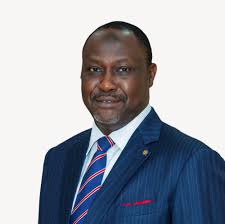The President of the Africa Finance Corporation (AFC), Mr. Samaila Zubairu has hinted that Africa requires about US$250 billion annually to close the climate financing gap.
Adding that, the high volumes of finance is required for sustainable infrastructure (clean energy and transport systems, green buildings, etc.). The bulk of these resources are expected to come from the private sector.
Zubairu who was represented by Mr Taiwo Adeniji, the Senior Director, Africa Finance Corporation (AFC) at the 2nd Edition of the African Natural Resource & Energy Investment Summit on Wednesday in Abuja stated in his key not address tagged: £Mobilizing Finance For Green Projects”.
He said that, African governments have a responsibility to design and implement conducive policies and regulations to attract private investments, particularly in priority sectors for climate action and green growth.
According to him:”African countries, particularly Nigeria, should consider utilizing innovative financing instruments and mechanisms to attract private sector financing. Instruments such as Social Bonds, Green Bonds and Loans, Sustainability Bonds and Loans, Cabon Pricing, Debt-for-Climate Swaps, etc. can and should be deployed to attract private financing.
“Multilateral Development Banks (MDBs) such as the World Bank Group, and the African Development Bank Group, and Development Financing Institutions (DFIs), such as the African Export-Import Bank (Afreximbank) and the AFC, have key roles to play in attracting financing for green investments into Africa. In addition to the commercial financing that they provide, those that have the capacity and resources can provide grants, concessionary finance, credit and risk guarantees, etc., that support capacity development and de-risk African investments thereby making them attractive to private investors.
“In addition, a wide range of traditional financiers have designated part of their capital to focus on green projects. These include development vehicles from developed countries like Britain’s BII, the Netherlands FMO, Germany’s DEG and the United States’ DFC.
“Africa indeed holds the key to the world’s transition to a sustainable future, being the home to significant proportions of the key transition metals, yet today it not only pays the price for the climate indiscretion of the past, but also struggles in accessing the funds it needs to change the course for a better future”.
Zubairu further stated that: ‘One of the key paths towards the achievement of net-zero is significantly scaling up investments in green projects.
“At AFC we believe the most efficient way to transform the continent, without further aggravating the climate situation, is to increase the amount of green energy available within Africa and at the same time develop the industrial capacity of the continent.
“A few weeks ago at the Nigeria Mining week, AFC partnered with the Solid Mineral Fund of Nigeria towards developing measures aimed at de-risking Nigeria’s mining sector and making it easier for investments to come into the sector”.
He, thus, hinted that, while there is an array of multilateral and national institutions that provide financing for green projects, I will like to particularly discuss two here:
“The Green Climate Fund (GCF).
The GCF, a critical element of the historic Paris Accords, is the world’s largest climate fund. The GCF’s goal is to support efforts to combat climate change by funding projects that address either Mitigation or Adaptation to climate change. A large share of their capital is dedicated to the developing world where the need is greatest.
“The fund works with governments, DFIs, Banks and other financial institutions to create platforms from which qualifying projects can access its capital, which ranges from grants to concession funding that have low return target.
The GCF has over US$ 26.5 billion in capital. Both Nigeria as a country and the AFC as an institution are recognized partners of the GCF. More information about the GCF, including how to access its resources, can be found on its website.
“Infrastructure Climate Resilient Fund (ICRF) The ICRF fund was launched by AFC’s investment vehicle, the African Capital Partners. The principal objective of the ICRF is to deploy capital to develop, construct and own low carbon and climate resilient infrastructure projects in Africa, while achieving medium to long-term returns for investors.
The fund once operational will focus on investments in high quality sustainable infrastructure (i.e. roads, ports, bridges, rail, telecommunications, clean energy and logistics projects in Africa) with the objective of making these assets more resilient to the impacts of climate change. More information about the ICRF can be found on the AFC website”, he stressed.











